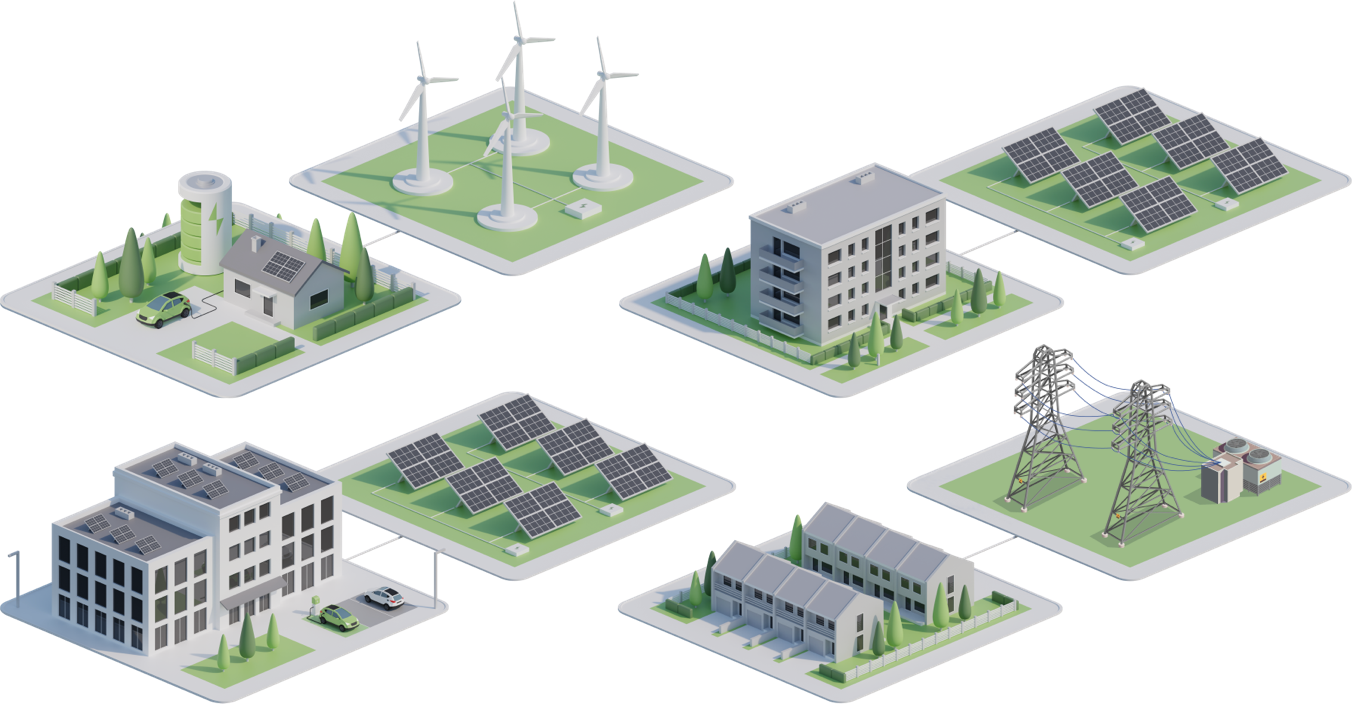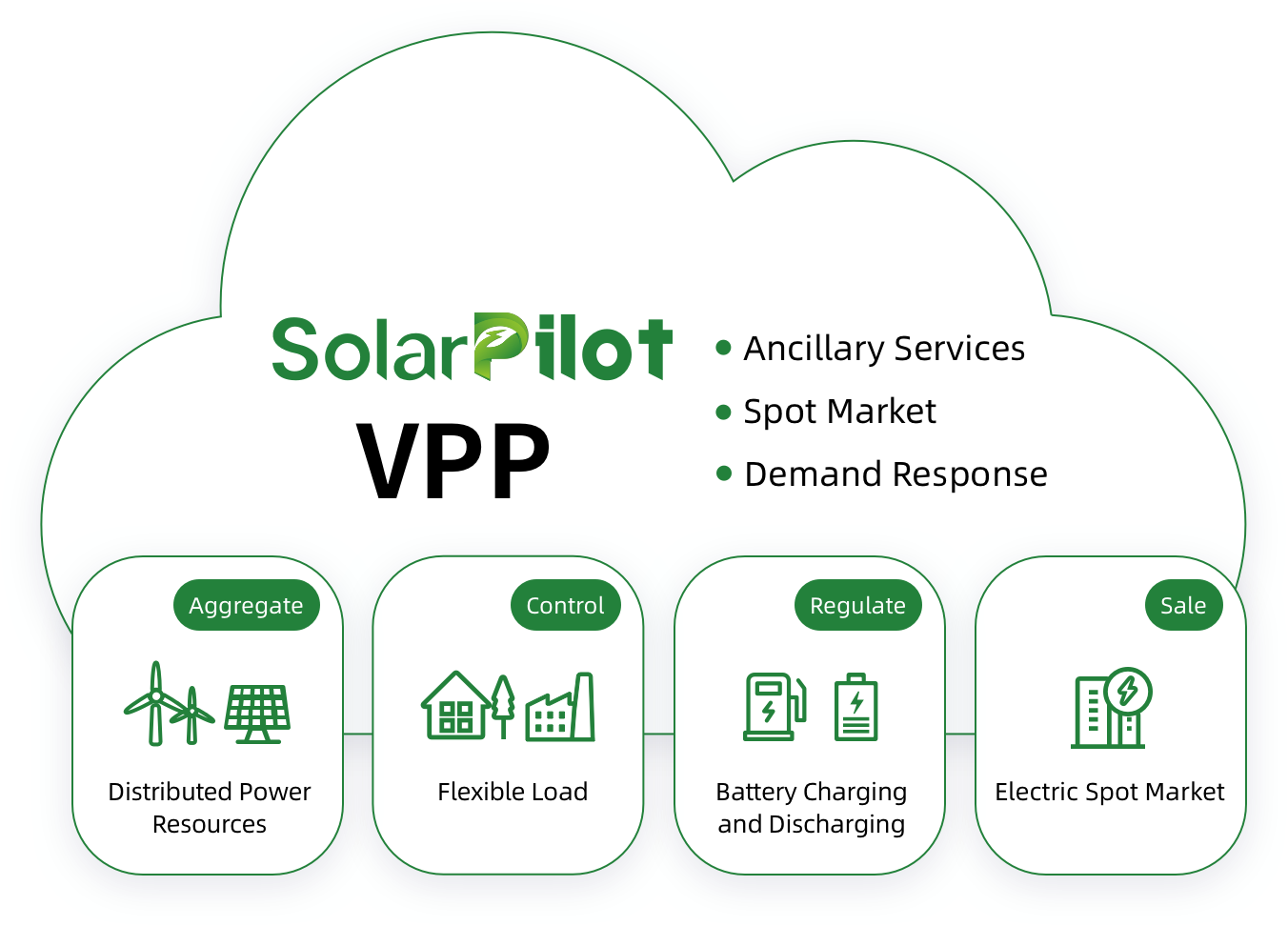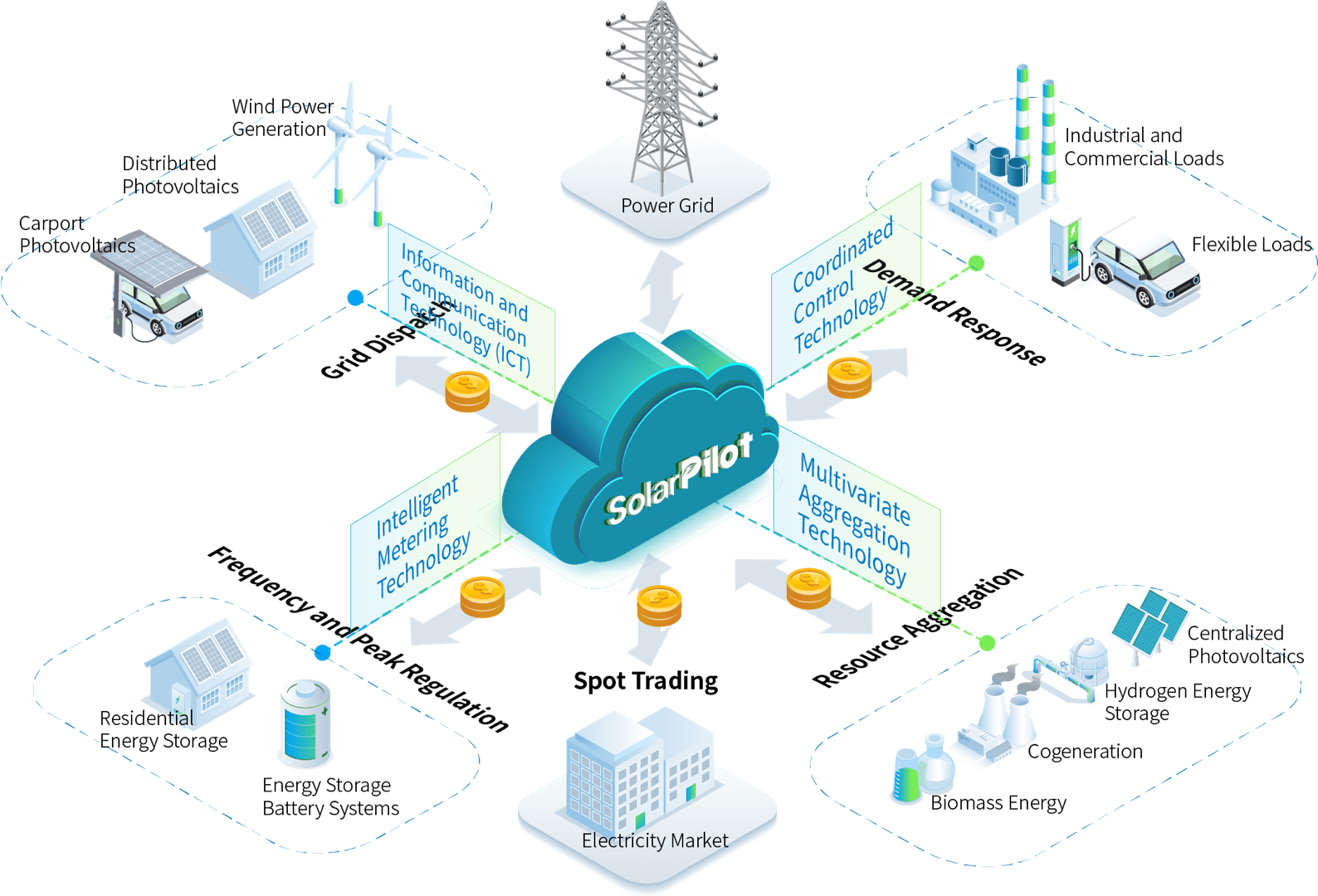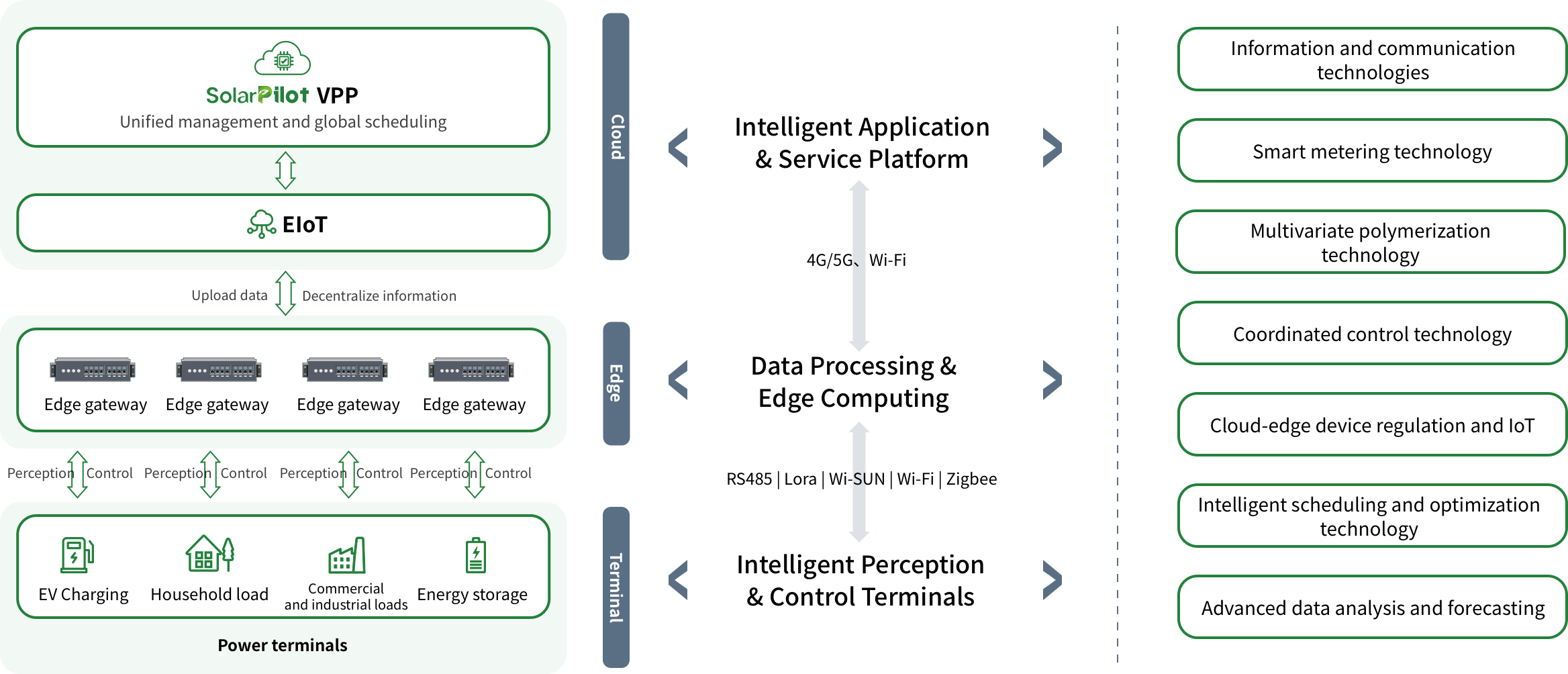Virtual Power Plant Solution
- Auxiliary services
- Spot trading
- Demand response
SolarPilot: Load-side Virtual Power Plant System & Technology Solution Provider

SolarPilot: Load-side Virtual Power Plant System & Technology Solution Provider


It is a new type of photoelectric dispatch management and trading system, the “invisible” central nervous system, which aggregates distributed power sources, energy storage, and adjustable loads (consumers) using technologies such as the Internet of Things and cloud computing.
This integration transforms a vast number of scattered “small power stations” into a virtual power plant with considerable generation capacity, meeting the entry threshold for major power grid connectivity and trading, thereby achieving flexible and resilient adjustment of electricity.

The core of the virtual power plant lies in utilizing energy Internet of Things (IoT) infrastructure to facilitate electricity trading, thereby ensuring power balance and grid stability.
These fields demonstrate the wide application of VPP technology, highlighting its great potential in enhancing the flexibility, efficiency, and sustainability of energy systems:

Adapt to diverse distributed resources to achieve free flow of data, unified operation of rules, global scheduling management, and three-dimensional security protection.

A virtual power plant software service developed based on cloud-native architecture, featuring security and stability, flexible integration, smart algorithms, efficient scheduling, and a positive user experience. Performance indicators for the cloud-native architecture can achieve smooth system upgrades through horizontal scaling, easily handling scenarios with large-scale device connections.
The platform can process at least 10,000 pieces of data per second to ensure real-time monitoring of device status.
During the demand response period, real-time control volume monitoring and qualification rate assessment are provided.
The average forecasting accuracy is above 80% to ensure the effectiveness of energy scheduling and optimization.
The system availability is above 99.9%, indicating a very high proportion of normal operating time throughout the year. The fault recovery time should be within 1 hour to ensure timely handling of sudden faults.
The platform supports adjustable loads, charging piles, energy storage, photovoltaics, and other common platforms and protocols in various industries to meet diverse device connection needs.
The incidence rate of security events is less than 0.1%, and the number of data leakage incidents should be 0, to ensure system security and data protection.

Distribute and deploy cloud-native applications through virtualization technologies such as containerization.
Adapts to diversified distributed resources to achieve free data circulation, unified operation of rules, global scheduling management, and three-dimensional security protection.
Adaptive mechanism models are imported into APE applications, combined with Al computing acceleration capabilities, to implement cloud-edge time series database collaboration.
Support public cloud/private cloud/customized platform construction
Multiple security encryption, financial-grade data security protection
Support access to multiple IoT protocols and collaborate with cloud management of smart devices
neural network algorithms, deep learning algorithms, variable step size increment algorithms (TinyML), load forecasting-power forecasting-intelligent scheduling.
Predict the power curve of the device + the clearing price; Accurate short-term electricity price trend prediction improves profitability
Welcome to the Solar Pilot website. In order to provide you with a better user experience and ensure the proper functioning of the website, we use Cookie technology to collect and process information about you. This Cookie Statement will explain to you the purposes, types, and choices you have regarding the use of cookies while using the website.